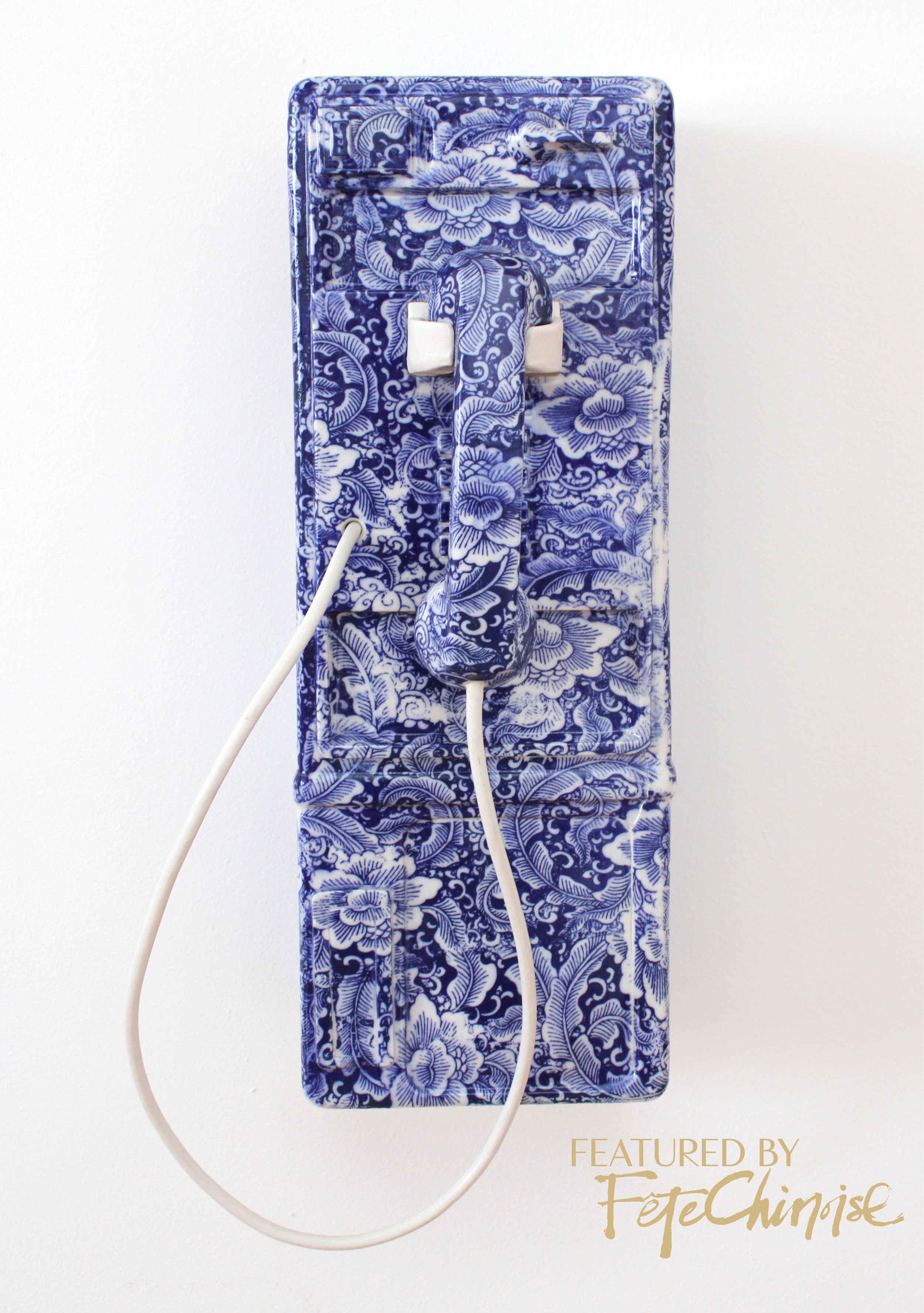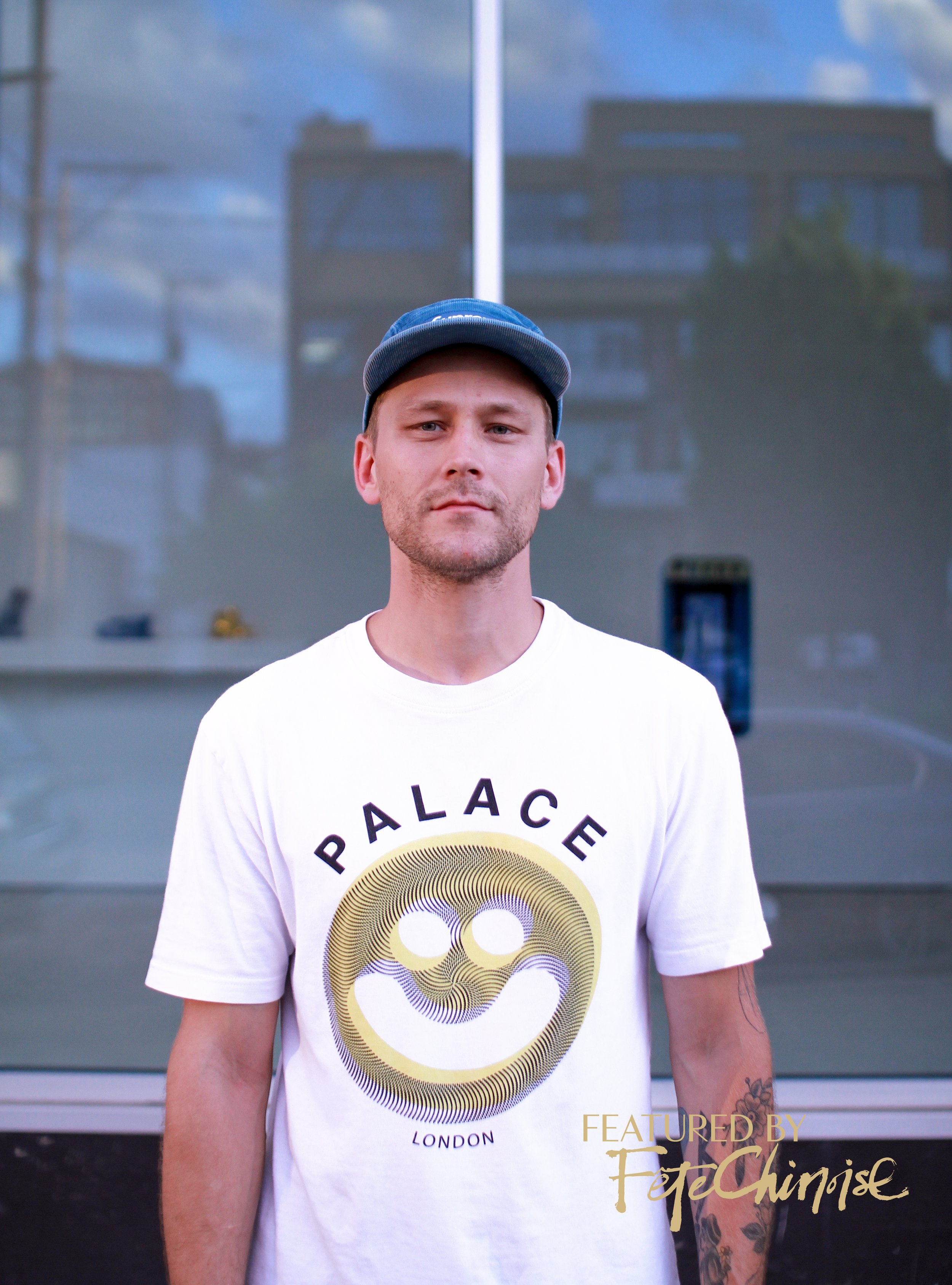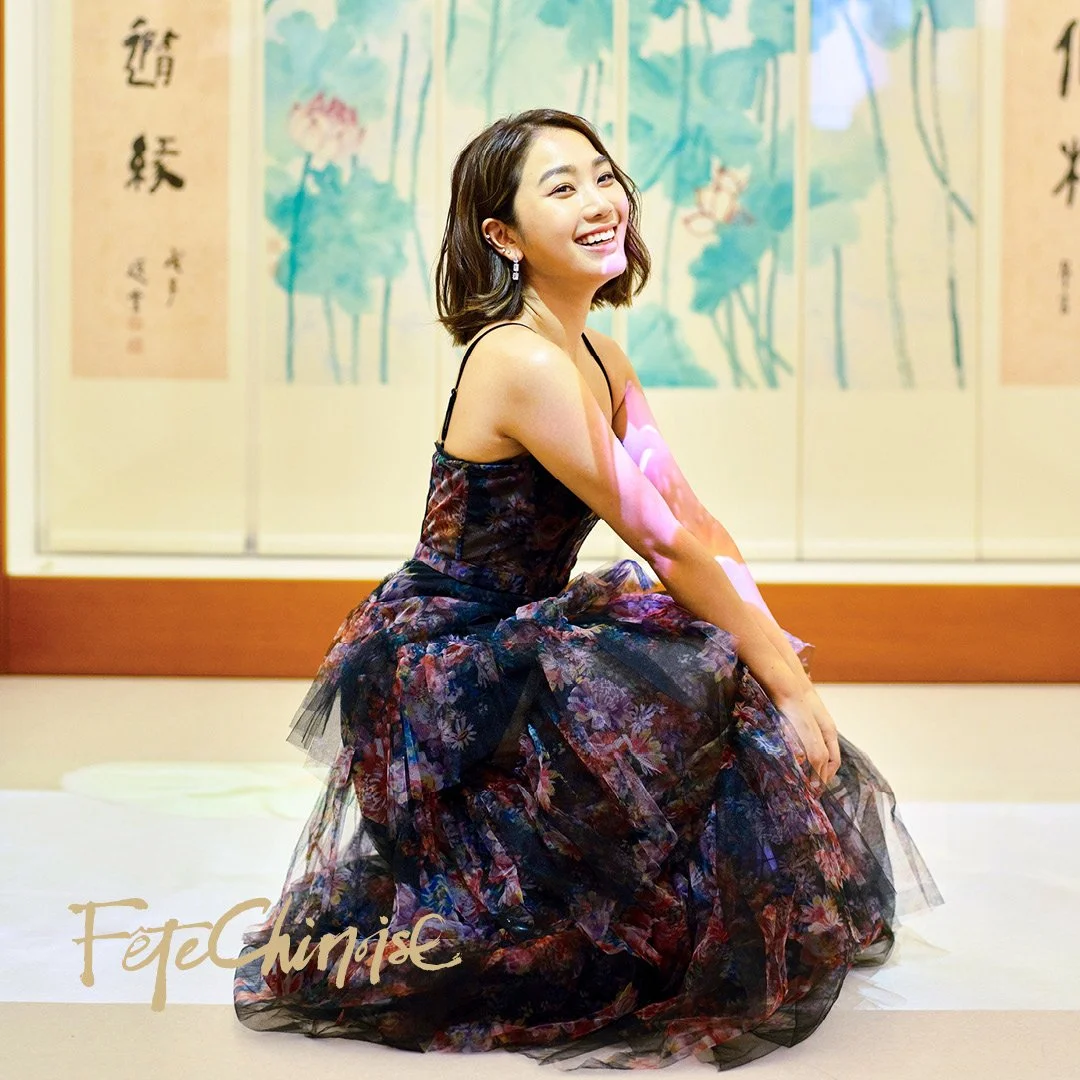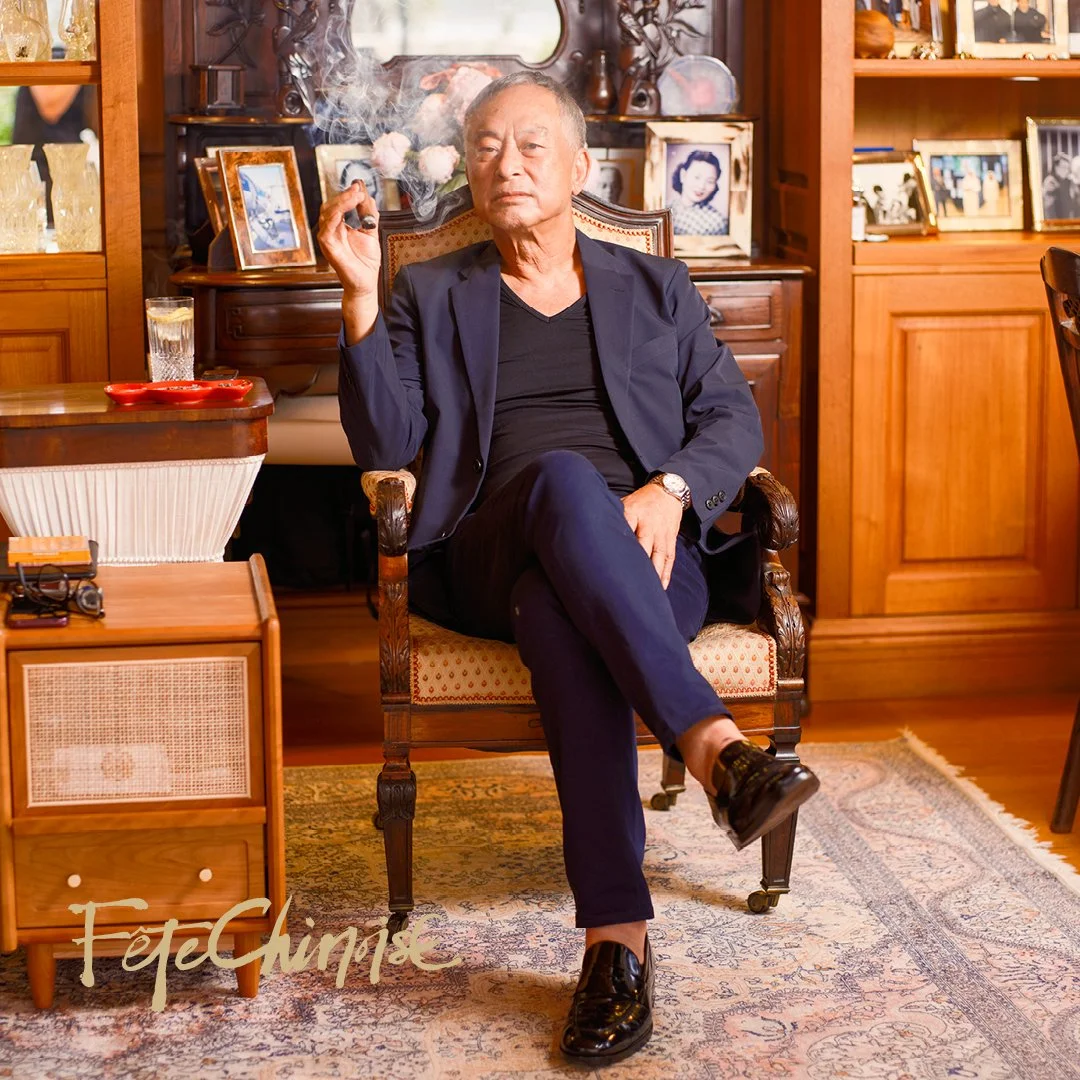Brock DeBoer: A contemporary porcelain language in traditional blue and white
Written by Fete Chinoise Team
Photography: Courtesy of Brock DeBoer
As featured in Edition No. 6 of Fete Chinoise Magazine: Time + Tempo
Embellished Blue Payphone, 2018. cobalt oxide on raw porcelain, glaze, pendant cord.
17.5” x 5.25” x 6.5”.
Once widely used and now nearly extinct the payphone is a symbol of our past connectivity and technology. Cast in porcelain and embellished with patterns of cobalt blue this relic is celebrated and references the rich history of porcelain objects.
I collected sneakers for a long time so they are often in my work and I love the idea of commemorating something that has a shelf life. These objects are sometimes left white and unglazed. This allows all of the details of the piece to be investigated and tell its story because there are no other distractions on the surface and the viewer can see all of the details in the textures of the materials and stitching. The glaze can often hide these subtle details and leaving the vitreous porcelain raw really allows them to shine because of the shadows created by the variations in the surface on the white porcelain. Capturing these details and executing them in the highest craftsmanship to mirror the actual subject is what I try to achieve in each work. These objects are also finished in a more historical way using the blue and white motifs and patterns as well as gold to reference delftware and other classically embellished works.
sponsored by piaget.
My start in art was the result of summer school between my freshman to sophomore year of high school. The art class I was in was the first opportunity I had to really work freely with clay. Immediately after I started to learn the basic techniques, I couldn’t get enough of the challenge brought on by the material and its endless possibilities. One thing that I think really kept me with it was pushing myself to get better and not allow the clay to “win.” I spent a lot of time skateboarding prior to that, which is why I had to take summer school, but after that class I was immediately hooked.
我認為我的作品是用瓷器鑄造的現代和懷舊物品的檔案快照,述說我的故事。用鑄造物體去描述過去或將臨時材料鑄造為永恆存在的物體,同時也告訴未來社會有關我們的歷史。我的藝術生涯從我中一的暑假班開始。在那堂美術課上,我第一次自由地使用粘土。在我開始學習基本技術後,我很快就愛上了材料的無盡可能性所帶來的挑戰。我認為真正讓我著迷的是一種無法解釋的動力,推動自己變得更好,不能讓材料勝過我的雙手。上完那堂課之後,我再也無法放下這門藝術。因此,讀高中時,我只用了一半時間在我自己的高中學校裏上課,其他的時間都在大學工作室裏上課。大學教授發現我對黏土藝術的抱負,就讓我自我發揮,我們一起造窯爐、做釉料,甚至還參加了其他美術學生的評論。這個畢生難忘的經歷不僅影響了我在堪薩斯城藝術學院(Kansas City Art Institute)的學習,更影響到現在我在洛杉磯的生活和創作。
By the time I was a senior in high school, I was in a college studio course and going half days at my high school. I spent every minute I could in that studio and the professor saw that I really had a passion for working with clay and he let me do anything I could think of. We built kilns, I developed glazes, and I even sat in on critiques for other fine art majors. This then brought me to study at the Kansas City Art Institute and I now live and produce work in Los Angeles.
I didn’t work with porcelain really until I was in college and it was in a very transitional period in my work and craftsmanship. Early on I couldn’t get enough of Peter Voulkes’s work and wanted to have that raw energetic feeling to what I was making. This was when I only used stoneware and salt glaze or raku firing everything and as I started in college with this background I then saw how much more control I could have — through the alchemy of the material I could make it do anything I wanted. This is where I began developing and working with porcelain on the wheel making extremely intricate dinnerware sets.
直到我上大學時,我才真正開始與瓷器藝術打交道。在上大學之前,我的作品和手工藝處於過渡時期。早期我對Peter Voulkes的作品很感興趣,希望我的創作也可以達到充滿同樣生氣的感覺。那時,我只使用粗陶器和鹽釉,或者使用raku燒製來完成我的創作。大學的時候,我開竅了。我發現我能全面控制這些材料。我也開始發明並使用帶輪來製作極為精緻的陶瓷餐具。
In college, I was also taking ceramics art history and frequently going to the Nelson Atkins Museum which has an amazing collection of Chinese pottery. I was always drawn to the high quality and powerful decorations, and as my knowledge of the material grew, I could start to see how innovative these pieces were. I started to really find myself focusing on making pieces that had the highest level of craftsmanship I could achieve. This combined with starting to discover my own personal and generational history, I became very drawn to delftware as I am Dutch. And from the 16th to almost the 18th century Dutch potters were creating works inspired by Chinese originals as well as other European motifs. So in a way there are many intentional connections that have been folded into my story and inspiration for making.
我還在讀大學時學習了陶瓷藝術史,同時也經常參考收藏了許多中國陶器的納爾遜.阿特金斯博物館(Nelson Atkins Museum)。我一直被高品質和動人的裝飾物吸引,隨著對材料的了解,我開始意識到這些作品所需要的創新性。當我繼續創作時,我開始專注於製作一些具有我所能達到的最高藝術水平的作品。這與我對自己的個人和家傳歷史的發掘相結合—因為我是荷蘭人的緣故,對Delftware十分著迷,
而從16世紀到18世紀,荷蘭的陶工創作受到中國原作以及其他歐洲風格的啟發。因此,我的故事和我的創作靈感已經包含了更多有意義的層次。
2020 for all of us has been hard to navigate. I have some plans for a few shows but both galleries are taking their time to be sure everything is safe. I have been fortunate to be keeping busy with several commissions and projects as well as taking time to start developing glazes and objects for future works. I can say I am excited to be exploring a lot of color and textural finishes and will be working towards creating some larger sculptural pieces. I am also working on the next generation/edition of payphones and am really excited about where things are going. As stressful as things have been, I have enjoyed the extra time to be focused and developing what’s next.
2020年對於所有人都有著不同挑戰。我原本的展覽計畫被暫時推遲,兩家畫廊都想要確保公眾的安全。我很幸運能夠繼續工作,我還有幾個已受委託的作品要完成。同時,我也開始為未來的作品準備釉料和物體。我為能探索更多顏色和紋理飾並創作更大的雕塑作品感到開心。我還為了研究與發展下一個公用電話系列而感到興奮。儘管最近承受了很大壓力,但我還是覺得這段時間讓我能更集中精神來計畫下一步。

















From April 11 to 13, the Grand Quay in Montreal’s Old Port will host the highly anticipated 2025 edition of Plural, Canada’s leading contemporary art fair. Formerly known as Papier, the fair began with a focus on works on paper and has since evolved into a reimagined event that reflects the multiplicity of voices, practices, and mediums shaping contemporary Canadian art. Amongst the standout projects is Like raindrops rolling down new paint, Karen Tam’s evocative work, presented by The National Bank and staged in the Espace Banque Nationale.